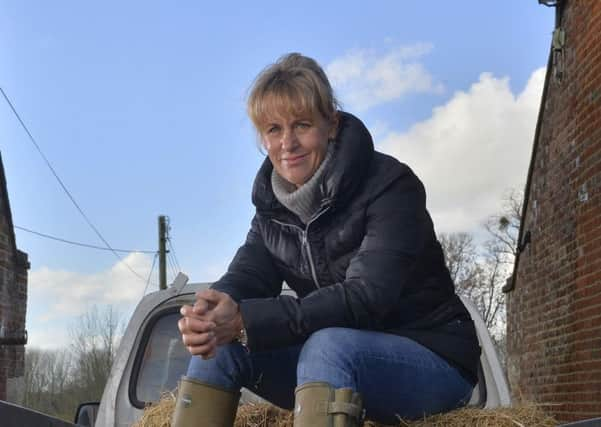Farm subsidies and market access post-Brexit top agenda
This article contains affiliate links. We may earn a small commission on items purchased through this article, but that does not affect our editorial judgement.


The Wiltshire farmer told the Oxford Farming Conference that access to free markets was vital for UK producers once outside the European Union, and that the sector needed to work together to ensure farmers didn’t lose out.
Batters said trade was the major hurdle to overcome before it started to think about other issues such as subsidies.
Advertisement
Hide AdAdvertisement
Hide AdDuring a session on the future of farm policies post-CAP, she said UK farmers needed full, unrestricted access to the common market.
Using the sheep industry as an example, which would see sheep meat traded at a 51 per cent tariff outside the common market, she said: “A whole economy approach is vital. We will negotiate trade as the UK – the more synergy across the devolved regions the better.”
However, journalist and political campaigner George Monbiot said “as much devolution as possible” was the only fair outcome for UK farmers and taxpayers.
In an often controversial address, Monbiot said that the whole system needed to be drastically overhauled. Pointing to hill farming as one of the major culprits, he said the current subsidy regime supported unproductive farming systems which damaged the environment.
Without significant changes, farmers could not expect to receive the £3 billion of public money it currently receives, he added.
“It won’t be a difficult political choice for the public between the farmers getting £3bn and that money going to the NHS,” he said.
“If we’re going to have a subsidy system it has to be fair,” he added. That included rural hardship funding which did not necessarily go to farmers, payments for the provision of public goods, such as flood prevention, and a transitional fund to deal with the “perverse effects” of the CAP.
“If we’re to move towards a more market-based system, it has to be more fair,” he added.
Advertisement
Hide AdAdvertisement
Hide AdMonbiot also said that government had to intervene to make systems fairer: “And that includes creating a fair market that ensure farmers aren’t steamrollered by the supermarket behemoths.”
Yorkshire vegetable grower and NFU horticulture board chairman Guy Poskitt agreed that the market needed to be fairer for producers, but said it was vital current levels of support were maintained – at least in the short-term – to help the industry grow.
“We should be looking for the same budget, but deliver a policy which means our businesses don’t need it,” he said.
“We want to use public money to drive our businesses into a position where we don’t need it. It’s not an overnight fix.”
However, National Trust director Helen Ghosh said while rewarding farmers for supporting habitats, wildlife, soil and landscapes was vital, she would be “very surprised” if current agricultural budgets were maintained.
“We will have to make a very good case to keep current payments at the same level,” she said. “We have to work together to convince ministers.”
